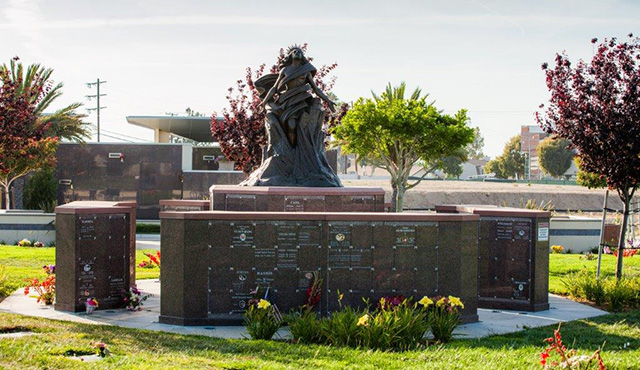In the words of former U.S. Olympic swimming goal medalist Mark Spitz, “If you fail to prepare, you’re preparing to fail.”
Harsh words but when applied to advance planning for one’s death, Spitz’s insight is prophetic. Statistics tells us that 70 percent of Americans fail to advance plan for their deaths.
Our negligence of not leaving a plan for our deaths can cause our surviving family added emotional strain and financial hardships at a time when they can least afford it.
So when is a good time to establish a will or a trust?
George Bean, a Tustin attorney familiar with estate planning, recommends doing it as soon as possible. “One should set up a will or a trust for your estate as soon as you have accumulated assets, such as a 401K, a house, children,” Bean says.
Bean said initiating a conversation about death with loved ones is an uncomfortable topic but a pragmatic choice. “It’s hard to talk about our death because we live our whole lives not thinking about dying, but it’s inevitable; everyone is going to die,” Bean adds. “Father Time is undefeated.”
Dying without a will or a trust can force family survivors into a lengthy and costly court battle. Probate court backlogs are extensive and probate can take up to two years when no estate planning exists.
Furthermore, when an executor is not named on a will, the courts assign an executor and an attorney for you, and their fees are paid directly out of the estate, so there is less money left for the deceased loved ones.
“Advance planning in the present will ease the pain and help alleviate burden for their surviving family in the future,” financial planner Mark Connolly emphasizes.
Connolly recommends, at a minimum, establishing a will and naming a trusted individual to serve as your power of attorney, who will handle your financial affairs when you can no longer do it yourself.
Also, naming a health care power of attorney individual is critical, so health decisions can be made on your behalf and your preferences for end of life decisions can be clearly communicated. In addition, taking immediate action to achieve HIPAA (Health Insurance Portability and Accountability Act) compliance is highly recommended to give individuals control over the use and disclosure of their health information by covered entities.
“Asking one person to handle all of these responsibilities is demanding, therefore individuals should consider choosing several trusted friends to handle these duties,” Connolly adds. “If left undone, then your family runs the risk of having a judge making decisions for you and those decisions may not be the wishes of the deceased.”
Individuals should meet with an advance planner or an estate attorney to set up a trust, including identifying beneficiaries, especially if you have been divorced or remarried, or had children or grandchildren since your retirement plan was established. People have a tendency to neglect updating these documents on a regular basis, and when life-changing events occur, the beneficiaries listed on the trust or a will may not be exactly who the individual intended at the time of their death.
Advanced planning becomes vital when special circumstances exist for the needs of children’s educational and medical needs.
Don Hunsberger, an attorney and an officer of the OCF Board of Directors, conducts regular will and trusts summits for OC parishioners. His primary goal is to provide information so people can make informed decisions. Hunsberger provides parishioners with information on how to begin to create their own advanced plan and estate guide. He identifies available resources and government benefits.
Tim Porras, an advance planning manager for OC Catholic Cemeteries, said that according to the National Funeral Directors the cost of funerals is doubling every 10 years.
Of the 1.3 registered Catholics in Orange County, Porras estimates 80 percent do not have advanced planning completed.
Porras said the average age people begin to make preplanning arrangements is in their 40s.
“People of that age group start to experience the loss of friends and family members,” Porras adds. “It takes a mature person to realize they will not live forever and to make preplanning decisions.”
Porras stressed that the preplanning is done for the benefit of the surviving members. He also indicated that people can lock in today’s costs and make payments for funeral arrangements ahead of time at all four OC Catholic cemeteries.
Advanced preplanning allows individuals to gather information and develop a logical plan with a clear mind, as opposed to making decisions on the fly when a family member dies unexpectedly.
More information about advanced planning, including wills and trust sessions, can be found at the Orange Catholic Foundation website at ocfpg.org.

